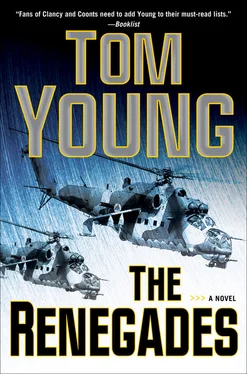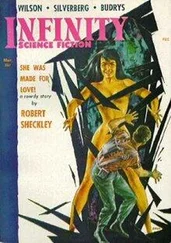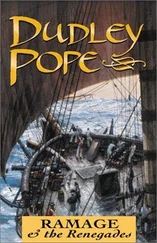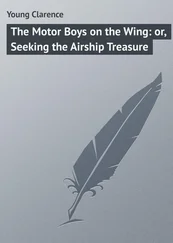And why would it be? If I were a former Taliban leader, Gold thought, I wouldn’t invite a platoon of Americans to see me, either. From his point of view, that would amount to a one-way ticket to Guantánamo. It was astounding that Durrani would agree to a meeting under any conditions.
“I understand your husband’s concerns,” Gold said. “I wish things were different, but this is the world in which we live.”
“This is what we have made of the world,” the matron said. She met Gold’s eyes. Then she turned to her daughters and asked for tea.
Gold considered the woman’s last statement, savored the wisdom of it. No talk of inshallah , how it’s the will of God and we can’t help it. No blame, either, though the woman probably had strong opinions about that. What other silenced wisdom existed among the women of Afghanistan? Maybe in this case it wasn’t so silent. Durrani apparently let his wives—or this one, anyway—talk to him about important matters.
Though Gold had no sympathy for the Taliban, she had learned not all Talibs thought alike. Maybe a few could be reasoned with. Gold hoped so. The only other way to win the war was to kill them all.
“How long have you been married to Mullah Durrani?” Gold asked.
The woman looked at her for several seconds, and Gold feared she’d asked too personal a question.
“Thirty years,” the matron said finally. “He had just completed his studies when we wed.”
Well, there was a good bit of information. At least Durrani had studied somewhere. Many Taliban imams had little in the way of credentials, could barely read. His schooling alone set him apart.
“Are you married?” the woman asked. She took a cup of tea from one of her daughters, motioned for the three Americans to be served.
“I am not,” Gold said as she took her tea. The matron nodded as if she’d expected that answer. Gold asked where she was from. Kandahar. They spoke of their homes; Gold told her of Vermont’s Green Mountains. Eventually the wife said, “Our meal is ready.”
The daughters ladled stew from the kettle and poured it into bowls. When they set Gold’s dish before her, she noted with surprise that the stew contained meat as well as potatoes and peppers. Murgh , as the locals called it. Chicken.
Steam rose from the first spoonful. She blew on it for cooling, but it burned her tongue a little anyway. Hot from the peppers, as well, but not too much. She could have used ice water, but she made do with the green tea.
“This is excellent,” Gold said. “We thank you for this meal.”
The women ate in silence. Gold contemplated what she had arrived at here. A brief moment of intersecting interests, perhaps. A patch of common ground never anticipated, not charted on any map. She’d visited scores of villages, talked with hundreds of tribesmen and -women. But she’d never gone this deep, sharing a meal with the wife and daughters of the enemy. Or maybe the former enemy. To get this far and not use it…
Gold placed her spoon in the bowl and looked over at the matron. “Madam,” she asked, “in the unlikely event I am allowed to meet with your husband, how may I find him?”
“There is a telephone number you must dial. The mujahid who picks up this telephone will answer such questions.”
The woman reached into a pocket inside her clothing, produced a folded scrap of paper. She handed it to one of her daughters, who passed it to Gold.
“We have lived so long in Darul Harb , the house of war,” the matron said. “I for one wish to enter Darul Amn , the house of peace.”
When the meal ended, clouds hung low outside like a sheet of steel. A slanting rain swept the shoulder of the mountain that overlooked the village. Gold said her good-byes and led Ann and Lyndsey back to the vehicles. As the rain began to fall on the village itself, the first drops struck earth so dry, their impacts left puffs of dust.
* * *
Sophia was coming unglued. Now Parson felt sure of it. She’d done a hell of a job following up on the tip that led her to a mullah’s wife. Good on her for that—it was why the taxpayers had spent so much teaching her the language. But to take seriously the thought of meeting alone with a former Taliban official? Of all people, Gold should know what happened to Americans in Taliban hands. She should know it right down to her fingertips. So on the ride back to Mazar in an MRAP lumbering through hard rain, Parson gave his answer: “Fuck no.”
Gold did not argue. She said only, “I understand, sir.”
“If Emily Dickinson reminds you not to get careless, what would she say about this?” Parson asked. Gold shrugged. For her, a rare gesture.
“Sounds like they want a high-value hostage,” Blount said from up front.
“I really didn’t get that feeling,” Gold said, “but I can see the security concerns.”
The dumbest private in the Army could see the security concerns, Parson thought. Then he said, “They tried to get me as a high-value hostage.”
“Due respect, sir,” Ann said. “That was Black Crescent. Mullah Durrani has nothing to do with them as far as we know. In fact, it sounds as if he doesn’t like them.”
Sophia Gold Junior, Parson thought. These Marine women would probably grow up to give good advice to some jarhead commander. But Parson had made up his mind. He’d rescued Sophia from terrorists once. He wasn’t going to have to do it again. Fuck this whole stupid idea.
During the rest of the drive, Parson turned his thoughts to other responsibilities. Maybe he could get another Mi-17 and crew sent up from Shindand so Rashid could keep flying. All available aircraft were needed to help move the relief supplies still piled up at the Mazar Airport. He’d seen pallets of lumber, too, for rebuilding villages. A good thing, if the aircraft could get the lumber distributed. Move people back into their homes before the cold weather. Parson wasn’t a public health expert, but he’d been around this kind of work enough to know you didn’t keep people in refugee camps any longer than necessary. The close quarters of those camps invited disease.
As the Cougars rolled up to the airport, Parson had his head down, going over notes in his pocket calendar: Call Shindand. Weight of lumber? NOTAM for runway repair? Flying time waivers.
He looked up when he heard Blount say, “Oh, shit.” The Cougar lurched to a stop.
Black smoke boiled up from within the airfield perimeter. Sirens screamed. The flashing lights of fire trucks and ambulances strobed across the base.
American security policemen blocked the main gate. A sign at the guardhouse read FPCON DELTA. Force protection level Delta. Attack imminent or in progress. The SPs held their weapons ready, not quite pointed at the vehicle’s windshield, but close enough to open up immediately. The sentries would assume nothing about anyone trying to get into the base. Terrorists loved to detonate secondary bombs and wipe out rescue workers.
“I need to see everyone’s ID,” one of the SPs said. He looked about nineteen and scared. Parson pulled out his wallet, withdrew his card, passed it forward. Gold and the Marines did the same.
The security policeman checked both sides of all the ID cards. Another SP checked underneath the vehicle. Finally, the first SP said, “Proceed.”
Parson took back his ID and asked, “What happened?”
“Suicide bombing. We don’t know how or when he got in.”
Shouting and wailing came from the refugee tents on the airfield. Gold leaned forward to look. “How many are hurt?” she asked.
“We don’t know, ma’am,” the SP said. “Too many.”
“Let’s get moving,” Parson said. He slapped the back of the driver’s seat. “Go.”
Читать дальше












